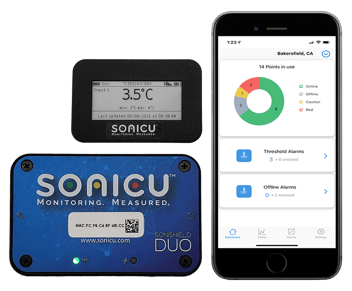Protect your vaccines; it ain't over yet...
Though not nearly as virulent as last year, Flu season 2018/2019 remains a threat nonetheless.
As of Jan. 26, the Centers for Disease Control and Prevention estimated some 10 million to nearly 12 million persons had contracted the flu this season, resulting in between 118,000 and 141,000 hospitalizations.
High Flu activity has been reported in Alabama, Arizona, Colorado, Georgia, Illinois, Indiana, Kansas, Kentucky, Louisiana, Massachusetts, Mississippi, Nevada, New Jersey, New Mexico, Oklahoma, South Carolina, Texas, Utah and Virginia as well as New York City.
Additionally, Massachusetts health officials say the year is heading in a bad direction and is likely to get worse over the next few weeks.
Even now, experts throughout the country urge residents to get their flu shots and guard against spreading the virus as flu activity is not expected to peak until later this month.
For the general public, that means continued hand-washing and and/or alcohol rubs to keep from ingesting the flu into eyes, mouths, and noses; covering coughs and sneezes; and remaining at home if sick.
For healthcare providers, the ongoing and perhaps rising tide of flu cases this year requires protection of valuable vaccine inventory. With the wave still potentially cresting, now is not the time to lose vaccines due to improper storage or faulty equipment.
The CDC notes in its January 2019 Vaccine Storage and Handling Toolkit update that “each year, storage and handling errors result in revaccination of many patients and significant financial loss due to wasted vaccines. Failure to store and handle vaccines properly can reduce vaccine potency, resulting in inadequate immune responses in patients and poor protection against disease.” And once lost, the CDC maintains, vaccine potency cannot be restored.
Requisite storing and handling requires a properly documented cold chain from manufacture through administration with appropriate medical-grade refrigerator/freezers and temperature monitoring equipment. Refrigerators must be able to consistently maintain temperatures between 36 F and 46 F. Freezer temperature ranges must range steady between -58 F and 5 F.
In all cases storage equipment should have a temperature monitoring device that accurately provides a temperature history reflecting actual vaccine temperatures.
Sonicu provides turnkey temperature monitoring kits for vaccines that meet all requirements and regulations suggested by the CDC and VFC program and helps customers meet the requirements of Joint Commission, CDC, AABB, AATB, CAP, HACCP, and FDA 21 CFR Part 11.
Glycol- or solid-buffer probes ensure consistent and accurate temperature readings and come with NIST-traceable, ISO/IEC 17025-compliant calibration certificates. Sonicu’s SNAP Calibration eliminates downtime, administrative burden, uncertainty and worry from regulatory required temperature probe calibration.
Sensor-to-cloud data transmission requires no additional hardware or software, and automated data logging and auto-formatted reporting eliminate manual data entry and streamline regulatory compliance.
The kits are easy to deploy, come with everything necessary to begin monitoring vaccine temperatures immediately and are fully backed with installation guides and customer support.
Contact Sonicu today to learn about worry-free vaccine protection for your office or entire healthcare enterprise.



